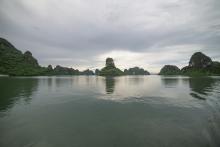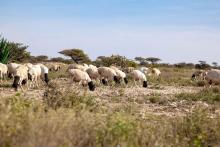The following text features the introduction and executive summary of a report published this September by the Council on Strategic Risks' (CSR) Center for Climate & Security. It was authored by Robert Bentley, Lily Boland, Michael R. Zarfos, and Andrea Rezzonico, and edited by Erin Sikorsky and Francesco Femia.










